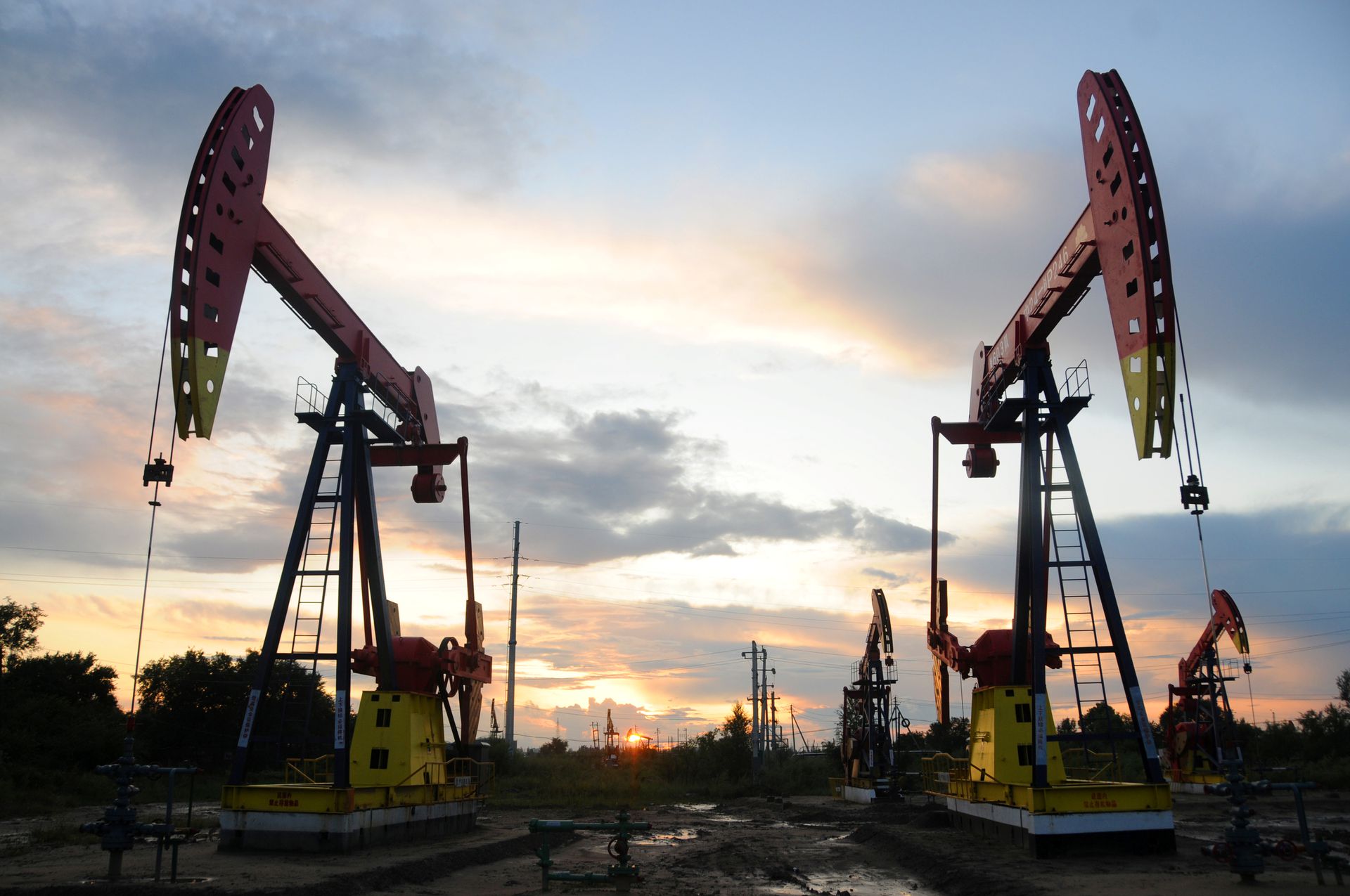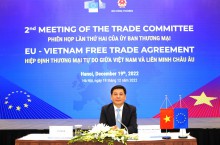The News
Impact of the EU's new energy plan on Southeast Asia
In the context of the energy crisis affecting all aspects of the economy, Europe is turning to coal and liquefied natural gas (LNG) producers in Southeast Asia to make up shortfalls after Russia cut gas supplies related to the conflict in Ukraine.
In the context of the energy crisis affecting all aspects of the economy, Europe is turning to coal and liquefied natural gas (LNG) producers in Southeast Asia to make up for shortfalls after Russia cut gas supplies related to the conflict in Ukraine.
The European Union's (EU) ban on coal imports from Russia, effective from August 2022, as well as Russia's decision to completely cut off gas supplies to Europe, have witnessed European buyers compete for coal from Indonesia, the world's largest exporter of thermal coal.
In early April, two months after Russia launched a special military operation in Ukraine, coal mining giant PT Adaro Energy Indonesia said it had sold 300,000 tonnes of coal to the Netherlands and Spain. Poland is also said to have ordered 53,230 tonnes of coal from Indonesia during this period. Industry experts predict that Europe's coal imports will soar later this year and into 2023 when energy prices are expected to rise further across the "Old Continent".

Speaking to Nikkei Asia at Asia's leading coal industry event "Coaltrans" held on the Indonesian island of Bali, the Chairman of the Indonesian Coal Mining Association said: “Indonesian coal demand is increasing significantly due to geopolitical issues. Germany, for example, is demanding a lot of coal from Indonesia. Essentially, by 2023, Germany could become Indonesia's second or third largest coal importer after China and India."
Europe will import coal from Indonesia and LNG from Malaysia
Indonesia's state-owned coal miner PT Bukit Asam has announced that so far this year, the country has exported 147,000 tons of coal to Italy and is currently in discussions with Germany and Poland about export plans.
Bumi Resources, Indonesia's largest coal producer by volume, recently revealed to the media that Bumi Resources has made some small shipments to Europe this year and predicts production will increase from the end of 2022.
EU Energy Commissioner Mr. Kadri Simson also arrived in Indonesia in early September to attend the G20 meeting of the world's leading developed and emerging economies and also visited a coal mine in this Southeast Asian country. Currently, Indonesia's benchmark coal price in September 2022 is at $319.22/ton, slightly lower than the record $321.59/ton recorded last month. In the first half of 2022, Indonesia's coal exports grew 20% year-on-year.
Meanwhile, Malaysia, the world's fifth largest exporter of LNG, is also said to have seen a sharp increase in exports to European countries, after Russia indefinitely halted gas flows. combustion to Europe via the pipeline “Nord Stream 1” (Nord Stream 1).
Felix Booth, head of LNG at shipping and energy analysis firm Vortexa, said: “LNG shipping in Southeast Asia is expected to continue to be buoyant as more customers seek to address energy shortages in Europe”. Speaking to DW, Mr. Booth said: "Buyers will be affected in the long run, as sellers deliver in parts. Because big companies may have to collect batches and then deliver,” that is, spot LNG is sold at a price much higher than European or Asian prices.
Earlier this month, European Commission President Ursula von der Leyen announced a series of proposals to tackle the EU's growing energy crisis, including the imposition of a ceiling on the price of Russian gas and a tax on the profits of fossil fuel companies. According to Ms. Von der Leyen: "The manipulation of the gas market has a spillover effect on the electricity market as households and companies face high electricity prices and large fluctuations in the market."
However, Ms. Von Der Layen stressed that the temporary shift to fossil fuels will not affect the EU's long-term green energy plans, as well as EU support for other parts of the world in the transition to cleaner energy.
Factors affecting the “Green Deal”
According to Sameer Kumar, Associate Professor at the Eurasian Institute of the University of Malaya, Europe's interest in Southeast Asia's non-renewable energy will not undermine the EU's environmental commitments. the use of coal is only temporary.
He added: “Although the use of coal can fill the current energy gap, I believe that the EU will accelerate its commitment to reduce dependence on fossil fuels by accelerating investment. into clean technologies.
Even so, Shada Islam, an independent analyst on European and Asian relations, said: "The fact that EU leaders say their efforts to eliminate dependence on Russian oil and gas, to push for the Green Deal is, in fact, sad, at least in the short term.”
According to her, while EU countries are reducing their imports of fossil fuels from Russia, their increasing consumption of coal and LNG is "a setback to the credibility of the Green Deal" and a blow to the EU's self-proclaimed global climate champion."
“EU countries are scrambling to replace Russian energy with increased imports from Asia and Africa while demanding financial institutions, such as the European Investment Bank (EIB),” Islam said. ), stopped funding gas development projects abroad, which has led to accusations of double standards.
Factors causing energy prices in the Asia-Africa market to rise
EIB Global, a division of EIB, has opened a regional representative office in Southeast Asia and the Pacific in Jakarta, signaling a new wave of investment in the region.
Kris Peeters, EIB Vice President and Head of Operations in Southeast Asia, said: “The EIB office will help promote new investment opportunities, worth millions of dollars into projects that help the region address its most pressing investment needs, all in a green and sustainable way.”
He said: “We want to affirm ourselves as a reliable partner of Indonesia in particular and Southeast Asia in general, and at the same time help the region grow and develop in a green, sustainable and empowering manner, limiting impacts of climate change…”.
As European countries turn to alternative energy supplies in Southeast Asia, there are concerns that Asian countries and other Africa will be subject to higher prices and be forced to rapidly increase state spending to afford higher LNG or coal costs.
“European countries are paying a higher price than others for access to LNG, thus excluding customers from Asian countries like India, Pakistan, and Bangladesh,” said Islam. However, an undesirable consequence of this is not encouraging Southeast Asian countries to promote their green transition.



